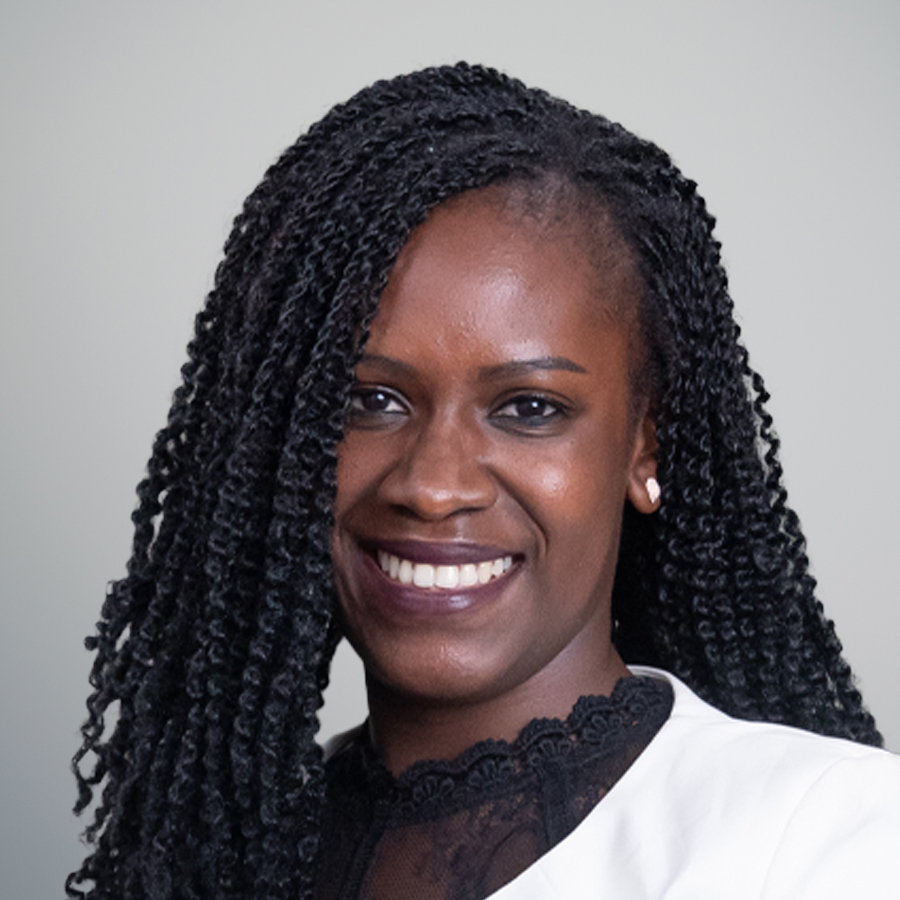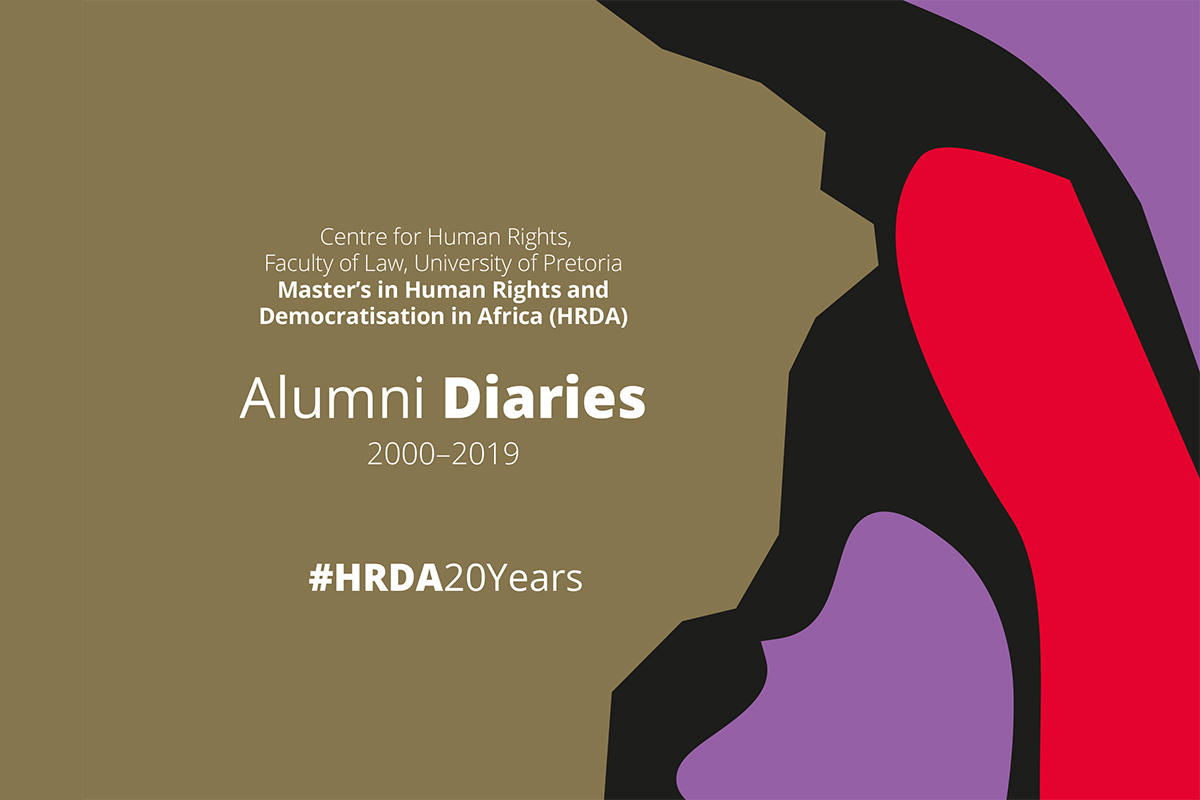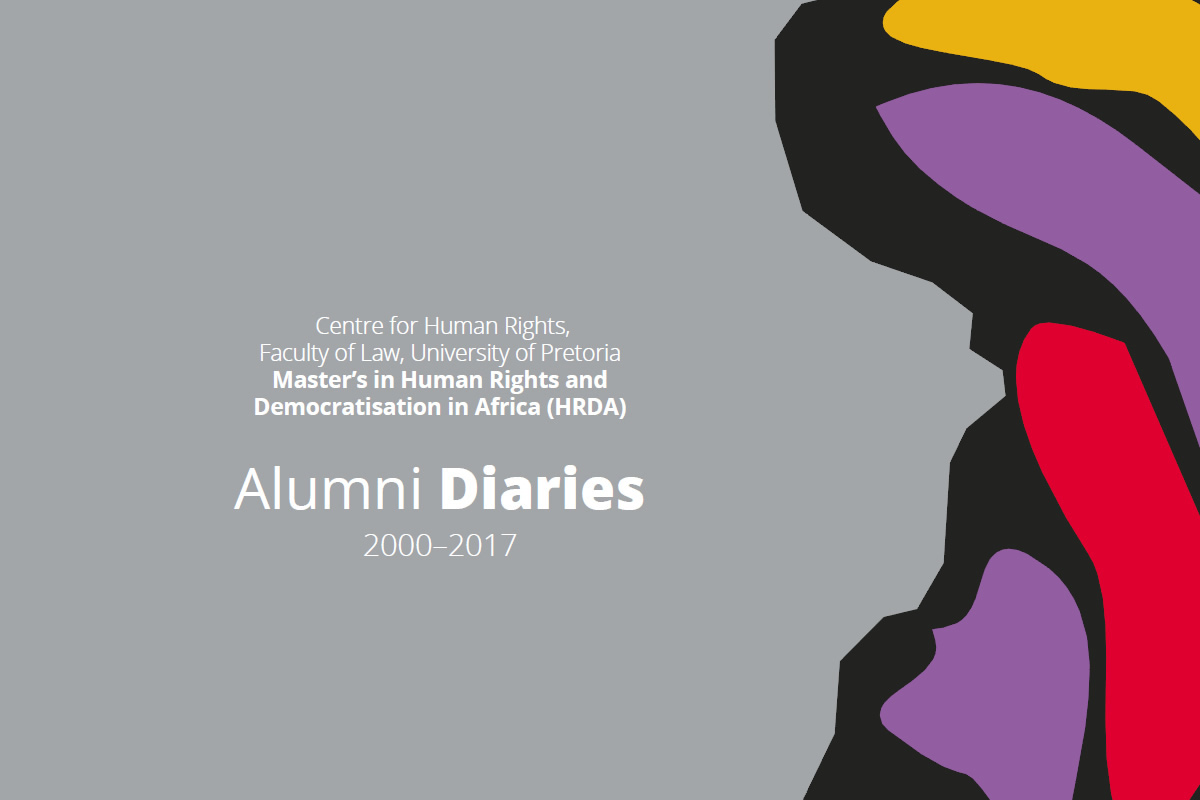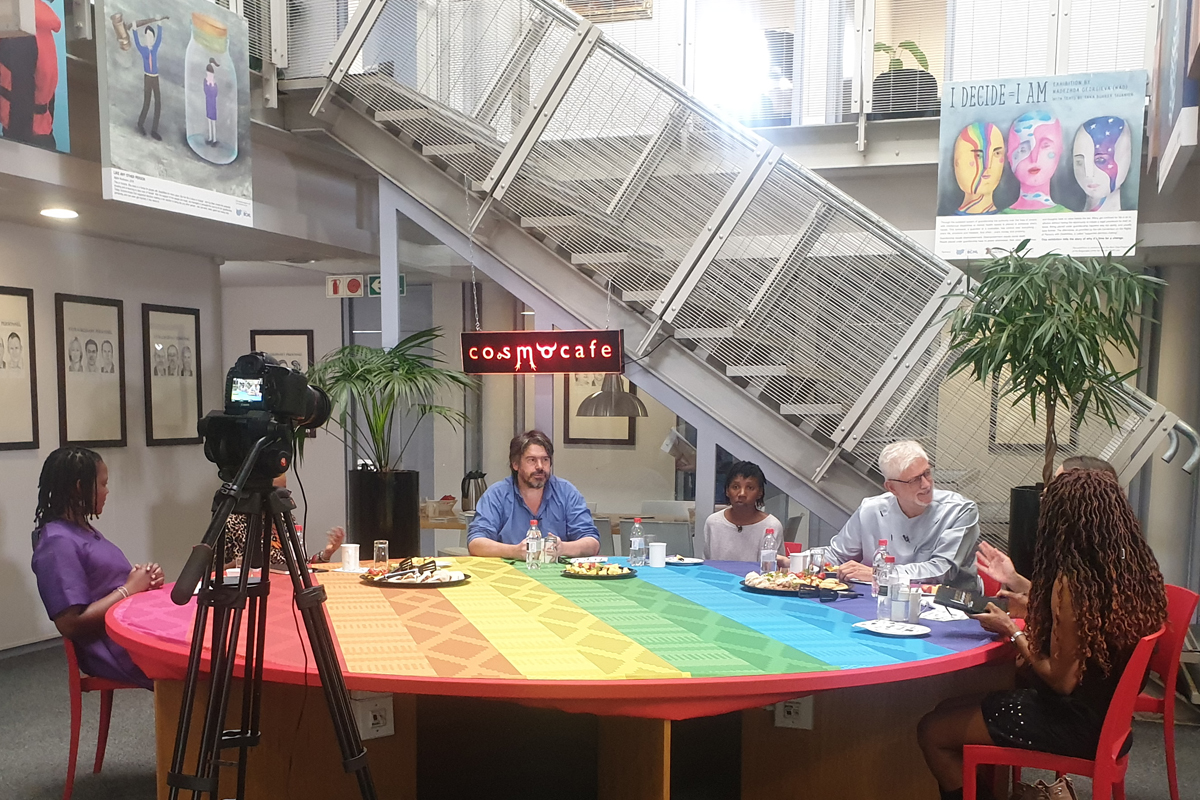On 6 February 2020, the Centre for Human Rights, University of Pretoria (UP), collaborated with Belgian artist Koen Vanmechelen to host the second African edition of Cosmocafe. The Cosmocafe concept is part of the Human Rights Pavilion project conceived by Vanmechelen. It entails real conversations on human rights issues, referred to as SoTO Dialogues (Survival of the Other), that discusses the possibility of a universal human rights concept and the role of human rights in development. Previously, Cosmocafes have been held in 19 locations worldwide including Harare, Zimbabwe.
The Pretoria Cosmocafe brought together seven remarkable individuals from diverse fields including lawyers, human rights activists, academics, entrepreneurs and artists to discuss the interplay between art and human rights with a particular focus on transitional justice. The participants included:
- Chido Govera (Zimbabwe), Social Entrepreneur, Future of Hope Foundation
- Kirsten Harris (South Africa), Creative Director, Hijinks Theatre
- Rudo Chigudo (Zimbabwe), Artist and activist
- Nomfundo Mogapi (South Africa), Executive Director, Centre for the Study of Violence and Reconciliation
- Mpho Tshivhasa (South Africa), Professor, Department of Philosophy, UP
- Koen Vanmechelen (Belgium), Artist
- Frans Viljoen (South Africa), Director, Centre for Human Rights
Participants reflected on the process of healing and reconciliation during the transition, and interrogated whether there is a right way to heal and reconcile. The perception was that, to a large extent, many concepts around transitional justice were borrowed from Western democracies. This left a gap that could be filled by African stakeholders injecting or reclaiming African concepts in the transitional justice processes happening in different societies. Transitional justice should proceed with an appreciation that ‘African’ concepts vary in different setups, and interact uniquely with the various facets of transition including economy, politics, culture, religion, and gender among others. For example, a shared African concept is the sense of community, therefore reconciliation and healing needs to be an inclusive communal process that still critically examines the individual needs of victims.
The participants also discussed the place of language in transitional justice. Individuals and communities express healing and reconciliation in different languages, both spoken and unspoken. Music, poetry, and drama that is relevant to the African context can be a suitable language for particular individuals, and enhance their healing and reconciliation process. However, many others lack the language to enable or express their transitional justice process and that can be a stumbling block to address past injustices. Participants also expressed concern about wounded leaders leading transformations, yet who are unhealed from their own wounds, and the potential implications to the success of transitional justice processes.
For further information about the Human Rights Pavilion project and the Pretoria Cosmocafe, follow the below links:
www.humanrightspavilion.com/pretoria
For more information, please contact:

Tel: +27 (0) 12 420 3180
Fax: +27 (0) 86 580 5743
marystella.simiyu@up.ac.za




